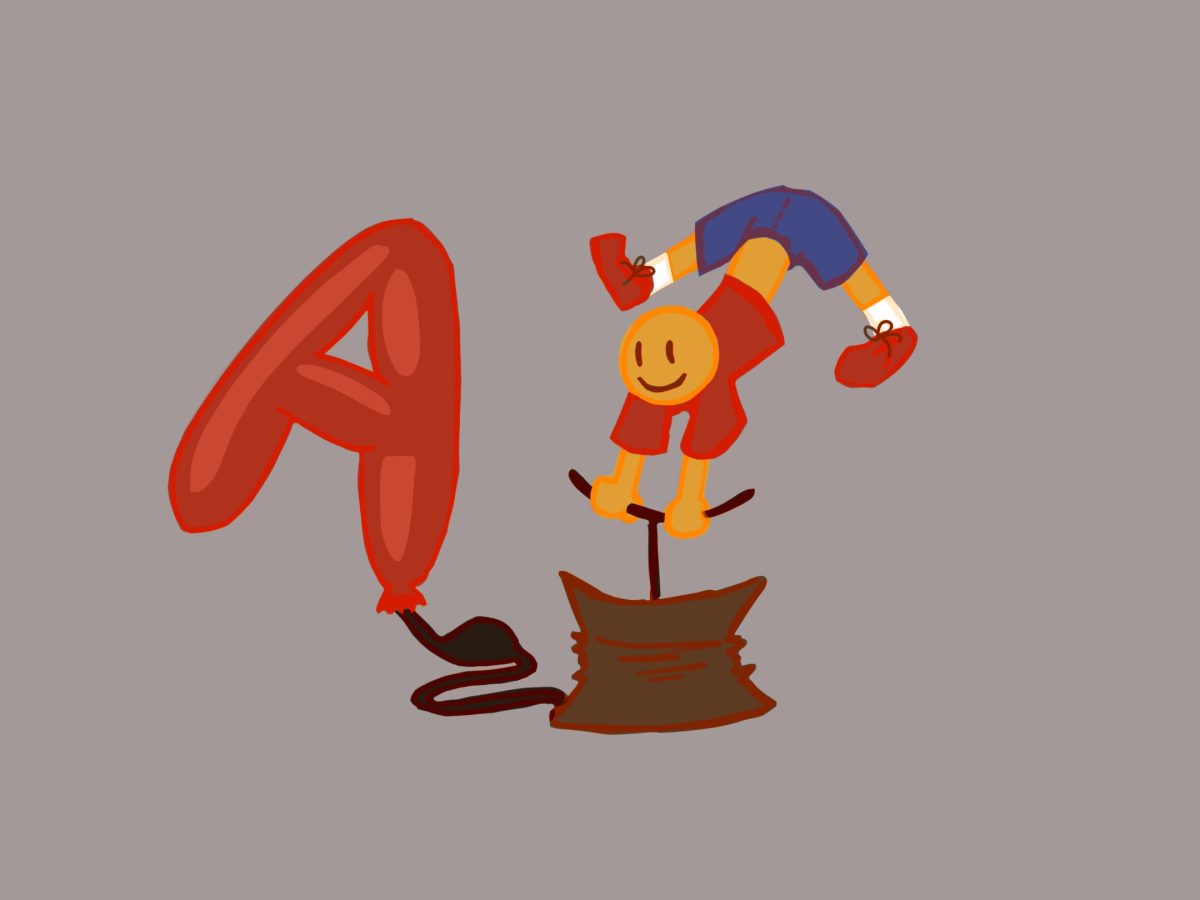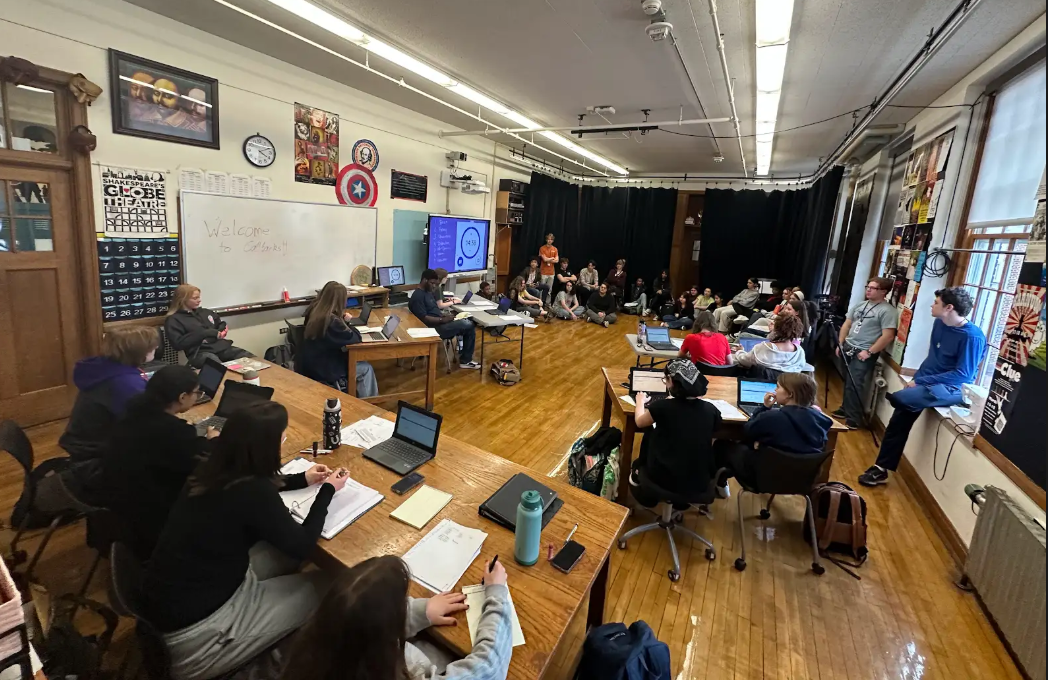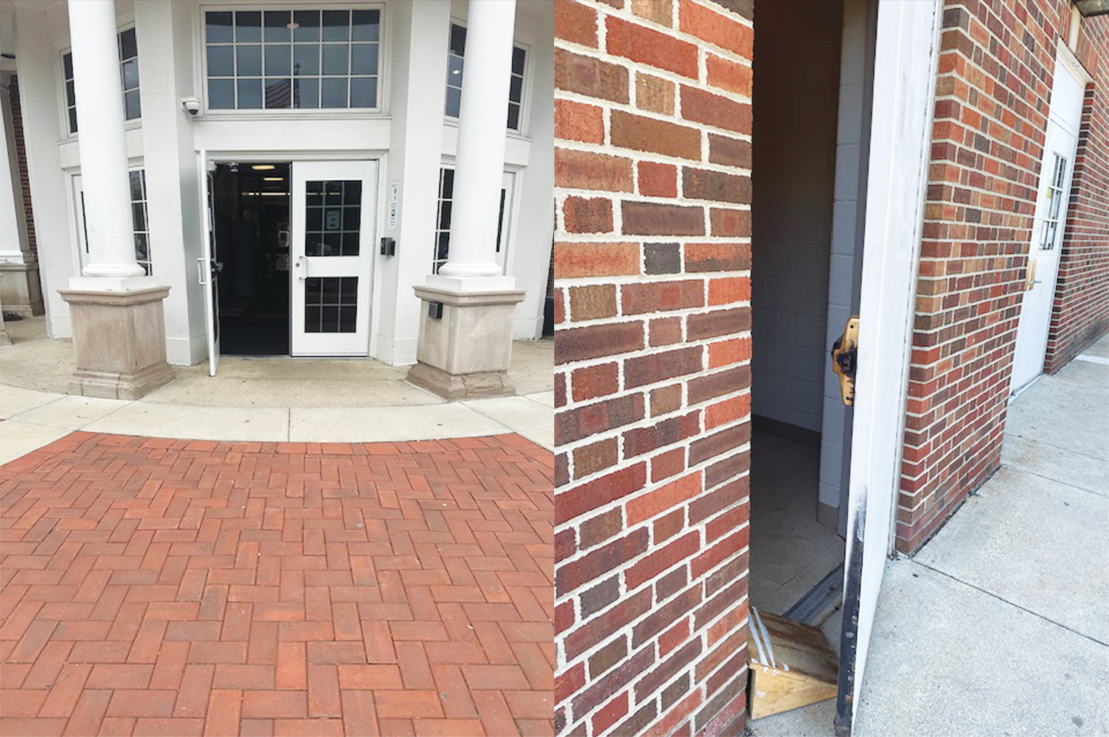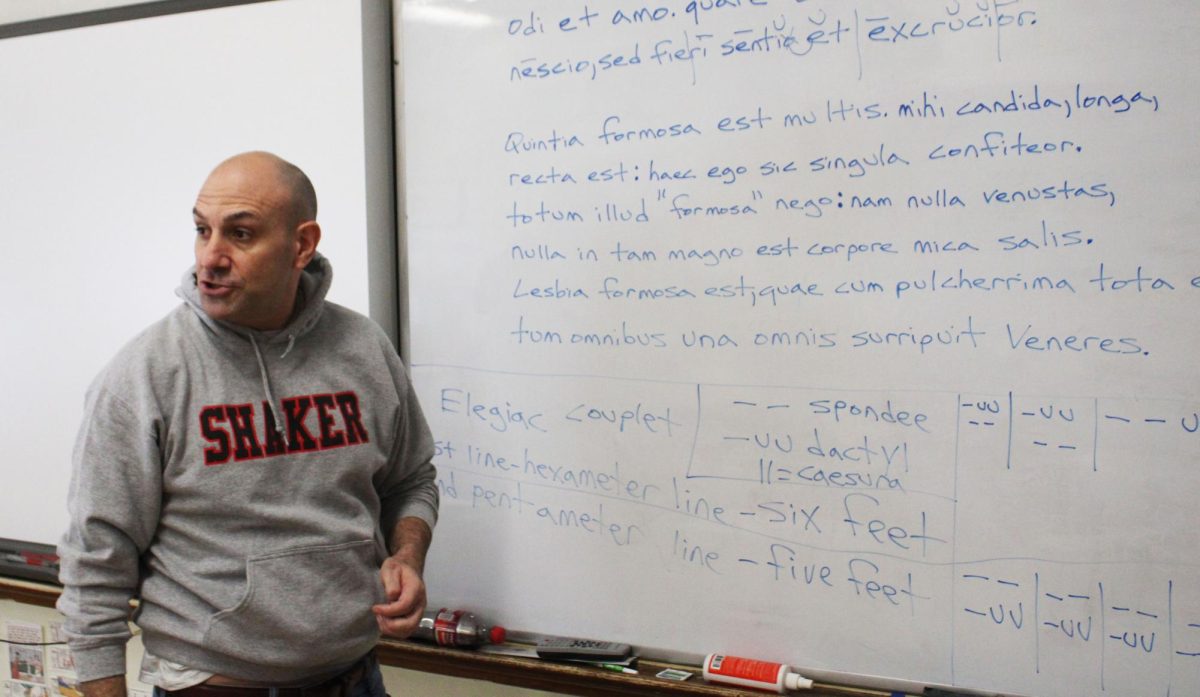Our success as students is defined by a series of letters and numbers.
We devote so much of our time, focus and mental energy to obtaining a grade that is somehow meant to represent our intelligence and our worth as students. Grades are intended to illustrate the extent of a student’s knowledge in a subject. The idea is that the highest-achieving students are those who have worked the hardest in the most challenging courses. Yet, as average high school grades continue to rise, this idea is becoming obsolete.
Shaker is not exempt from this trend.
It would seem that a dedicated minority of students would earn A’s. However, data shows the average grade point average over the past decade has increased significantly — and this trend is not supported by an increase in test scores. According to the National Assessment of Educational Progress, the average GPA in the United States has increased from 3.17 in 2010 to 3.36 in 2022. In some areas, that increase is even higher. The average GPA in math has jumped 0.3 grade points, from a 3.02 to a 3.32. Admission to college can be determined by a few tenths of a point, so this increase should not be ignored.
Despite the increase in GPA, student performance on standardized tests such as the ACT and the SAT, meant to assess academic readiness and potential, has actually declined, which may be partially due to the loss of learning that the COVID-19 pandemic caused. In 2023, the average SAT score nationwide was 1028, the lowest since the test changed formats and a departure from an average score of 1050 just one year earlier. When students’ performance on raw academic assessments does not match the letters on their report cards, these grades may not represent a student’s true performance.
At Shaker Heights High School, the average GPA among all students for the 2022-23 school year was 3.35. However, 70 percent of students have taken an AP, IB or other honors course, and the average GPA among these students jumps to 4.07. According to the 2019 National Assessment of Educational Progress High School Transcript Study conducted by the National Center of Education Statistics, students are both earning higher grades and taking more rigorous classes than previously, yet their standardized test scores have not increased.
These trends also affect Shaker. The average GPA in 2010 was a 2.83, an average increase of 0.52 in a little over a decade, while the average GPA among students enrolled in at least one AP or IB class increased from a 3.91 to a 4.07 between 2010 and 2022.
In an anonymous March 5 survey administered in crew classes, 59 percent of students reported feeling that their grades were an accurate representation of their performance. “I work really hard on my assignments, and I often get a fitting grade for that work,” one junior wrote.
However, other students expressed that the grades they received were either too low or too high, or were unsure of how well their grades represented their performance. “Some APs require very little work to get an A,” one senior wrote.
Yet the issue of grade inflation is not up to the high school alone to resolve. “I think that our school over-inflates grades based performance. But compared to other high schools, we are very similar. So there is not a change that should be done on our level but on a higher one,” another senior wrote.
AP Biology teacher Nathanael Hsu, who has taught at Shaker for 13 years, said that there has been an overall decline in students’ academic performance. “There are still students that turn in high-quality work, but on average there’s been a decrease. I think that Covid made it really tricky for students to learn proper study habits. There’s also the rise of the Internet and finding answers on Google, and as AI becomes bigger and bigger, it’s going to affect the quality of work,” Hsu said.
“There is a lack of motivation, and students don’t have too much difficulty copying information down, but if asked to generate information on their own, that’s when they have problems. On tests, when students have to describe or explain, there has definitely been a decrease in students’ ability. In the past, because students are young, sometimes when I asked them verbally, they got tripped up, but if given time they could write it out. That ability has decreased — the ability to write out thoughts to express something.”
One factor affecting grade inflation, which also affects Shaker, is the shift in grading policies in recent years. Schools have been moving more and more toward eliminating the zero grade for missing work, and toward allowing repeated test retakes.
Calculus and geometry teacher Walter Slovikovski said that in his 36 years teaching at Shaker, his grading policies have definitely changed. “I think the biggest change across the board is the establishment of retakes and test corrections, and I think that’s what’s most likely to show grade inflation,” Slovikovski said.
However, students must earn these retakes. “In terms of retakes, what a lot of us try to do is to have people do some work before, have homework in, come in for conferences and troubleshoot. We want kids to earn the retake. That’s key to making the next attempt matter,” Slovikovski said.
Another recent change to Shaker’s grading policy has been the elimination of assigning zeros for missing assignments. The zero has been the focus of education reformers who believe it removes the opportunity for students to come back from their mistakes. In 2014, Shaker Heights Middle School decided that missing assignments would earn a minimum of 45 percent and this policy has remained in place. Ten years later, students know that even if they make zero effort, they will still receive some points, and can still pass despite many missing assignments.
Slovikovski said that the adjustments made during the pandemic may be partially responsible for today’s relaxed grading system. “We’ve lost the academic rhythm that COVID-19 disrupted,” Slovikovski said.
Math teacher Abigail Goldstein agrees that the pandemic has played a role in changing the grading system. “I think post-COVID-19, my expectations flattened. I do think being at home and learning sort of flatlined everyone, and it’s a steep curve to get expectations back up to where we would want them,” Goldstein said.
Hsu said that one issue is the prevalence of inflated grades across all courses. “For biology, there used to be five different levels where only honors and AP got boosted GPA adjustment. Now, no 10th grader has normal biology and a non-boosted GPA. If students can’t take regular biology, then they take honors biology and get a grade boost, so grades are getting inflated,” Hsu said.
This change to biology classes is the result of the detracking initiative that began in 2020, which aimed to address racial disparities in higher-level classes. The goal was to de-level certain classes at the high school, removing the distinction of “honors” and “core,” which meant that most classes are now weighted as honors classes, despite the workload being comparable to what was previously considered “core.” In a 2023 Shakerite story covering detracking, a biology teacher said that detracking is “not everyone in honors, it’s everyone in core.”
Hsu said that students and parents often put pressure on teachers to raise grades. “I would say that pressure has not really changed over the years. To have a student earn a higher grade for an assignment— I think that has been pretty consistent. It seems now that there’s more pressure from the administration, or even the culture of education, but that’s just my opinion,” Hsu said.
Slovikovski said that grade inflation is not necessarily an issue at Shaker, because students are earning better grades due to retakes. “I think the policies of test corrections and retakes give students the chance to improve their grades and make a difference for themselves,” Slovikovski said.
Dr. John Moore, director of curriculum and instruction, said that he is not concerned about grade inflation. “If we have quality assessments that are a good representation of what students have learned, then I would be ecstatic if everyone got an ‘A!’ My inkling is that we in Shaker, and around the world, have to continue having deeper discussions on the meaning of grades and the learning they represent,” Moore said.
Global Studies teacher Paul Kelly said that detracking may have contributed to grade inflation at the high school. “We used to have different levels, and that’s OK, I think, because you meet students where they are. If everything’s honors, is anything really honors?” said Kelly. “Shaker used to be this school where when students came here they got pushed, and it was painful sometimes, but when students left, I didn’t wonder if they were gonna make it. Now, I wonder if they’re going to survive college.”











